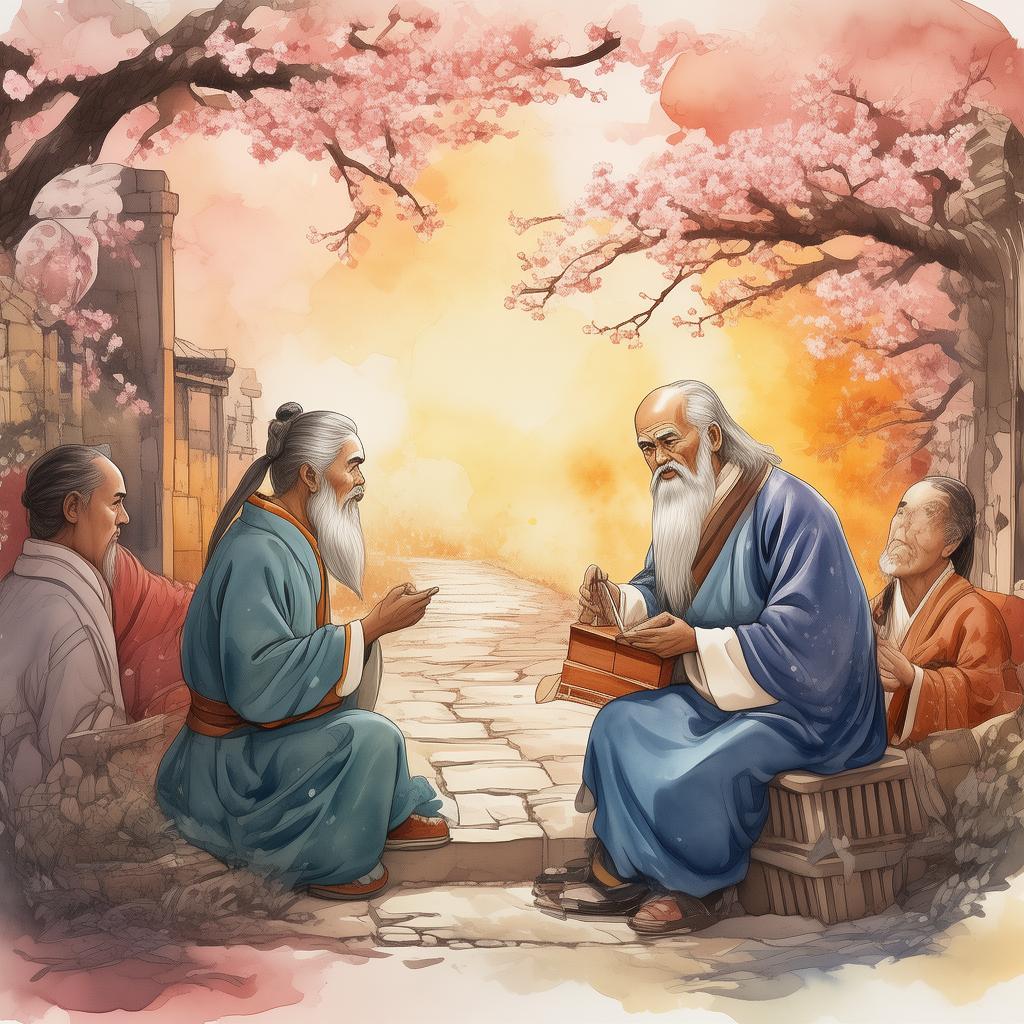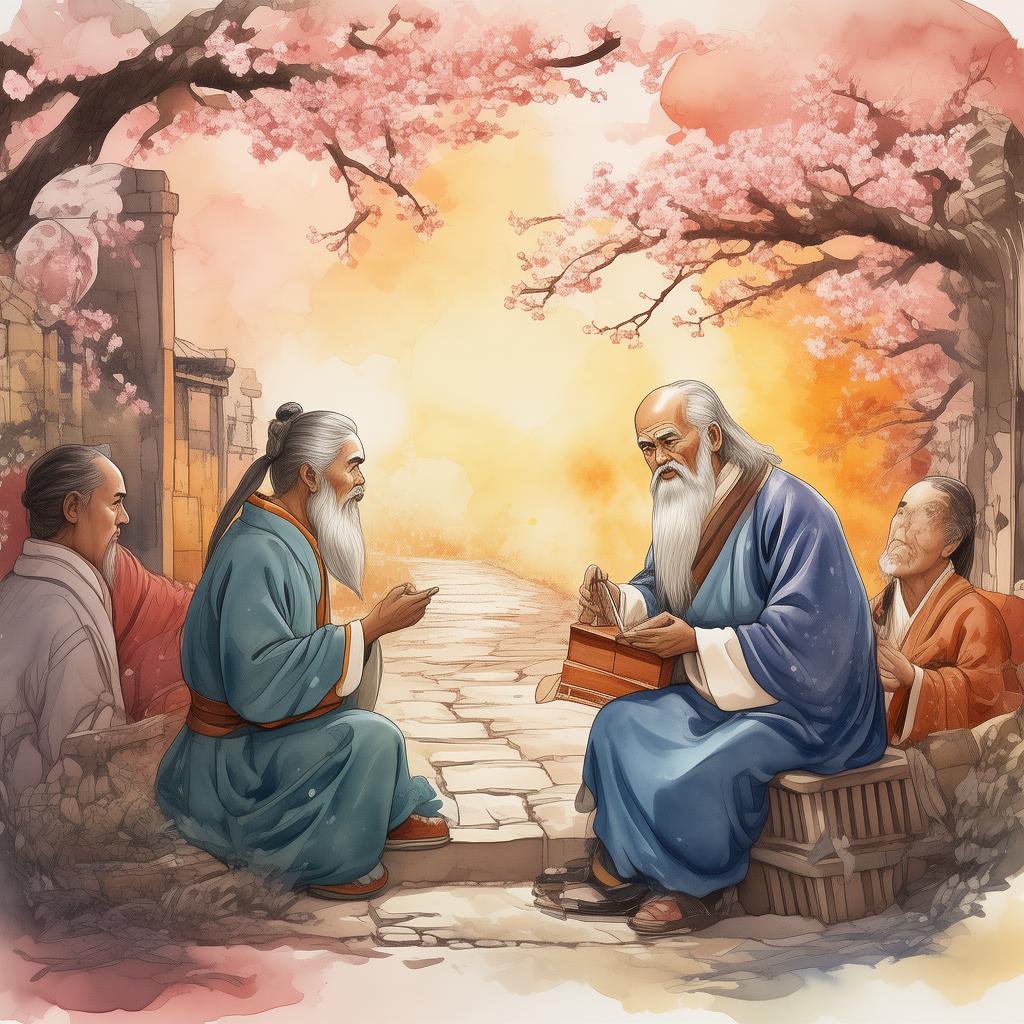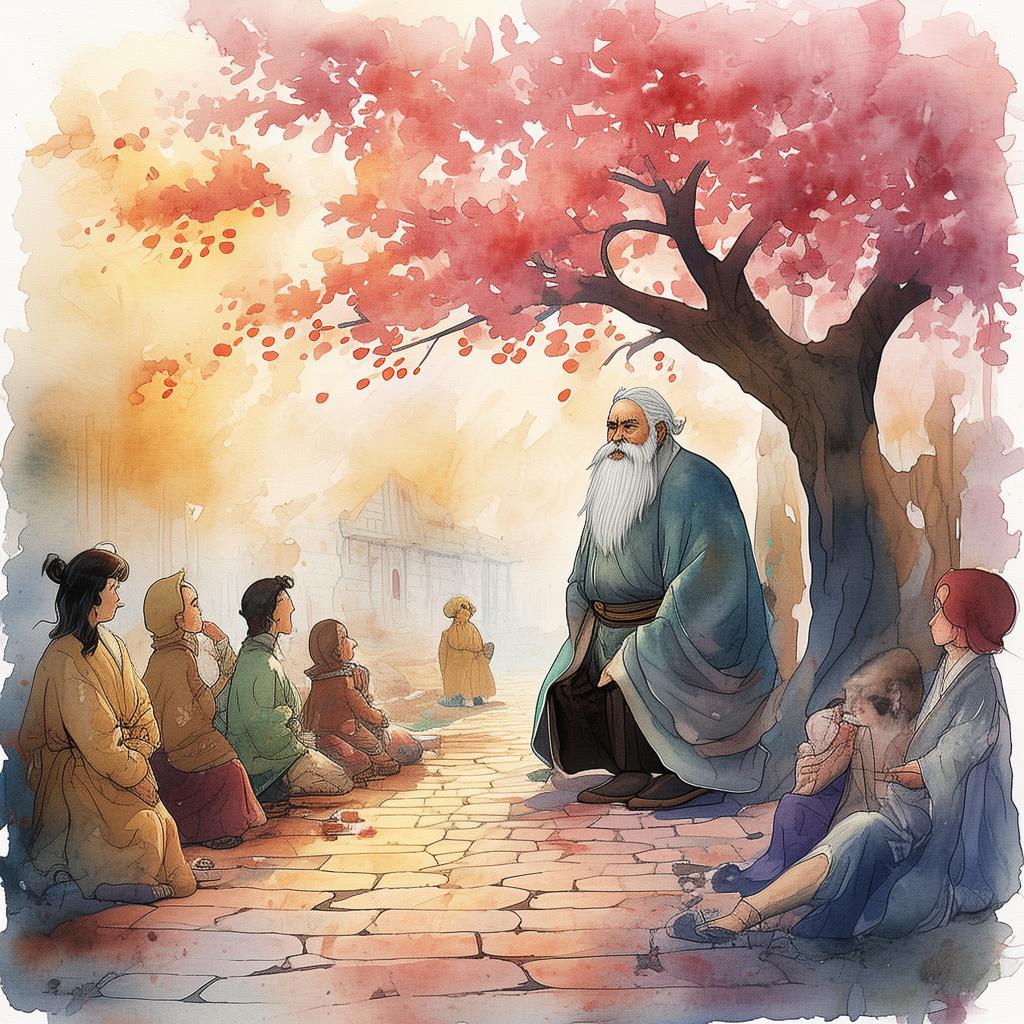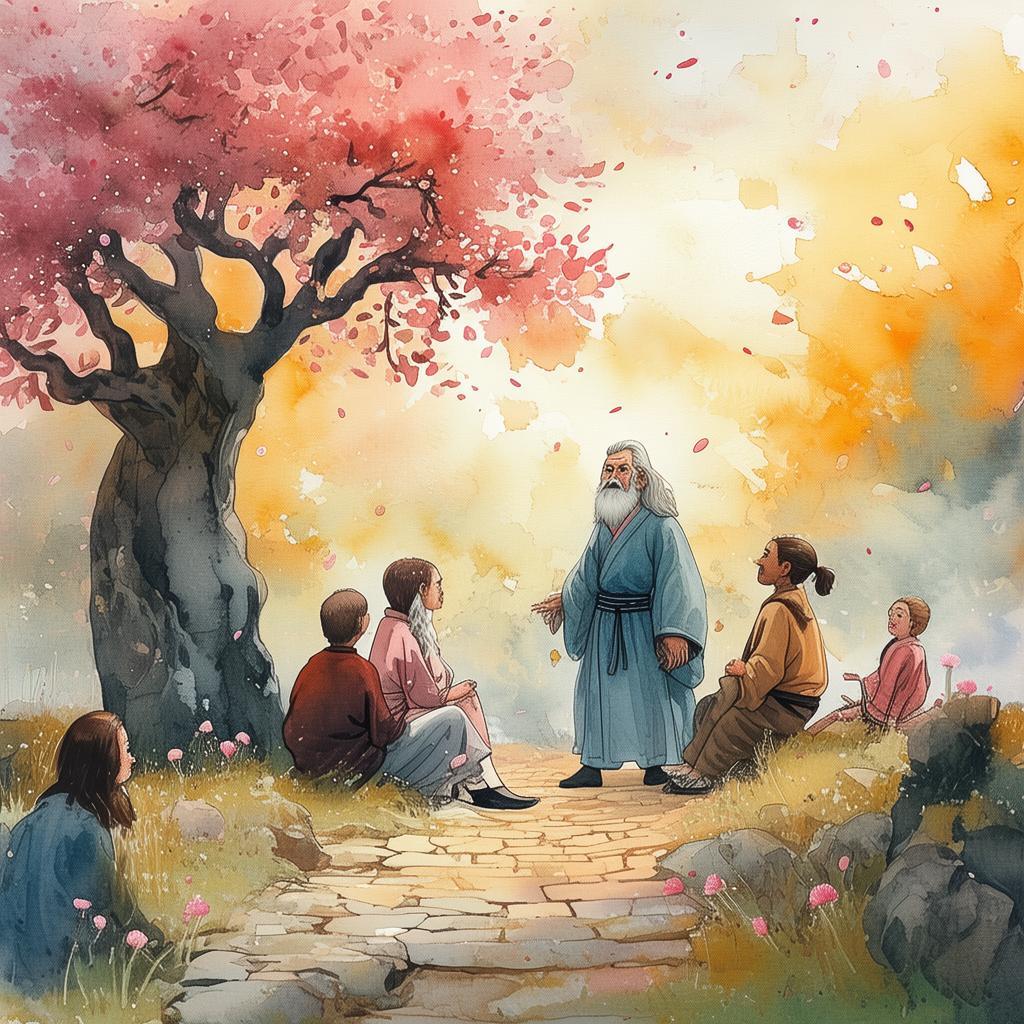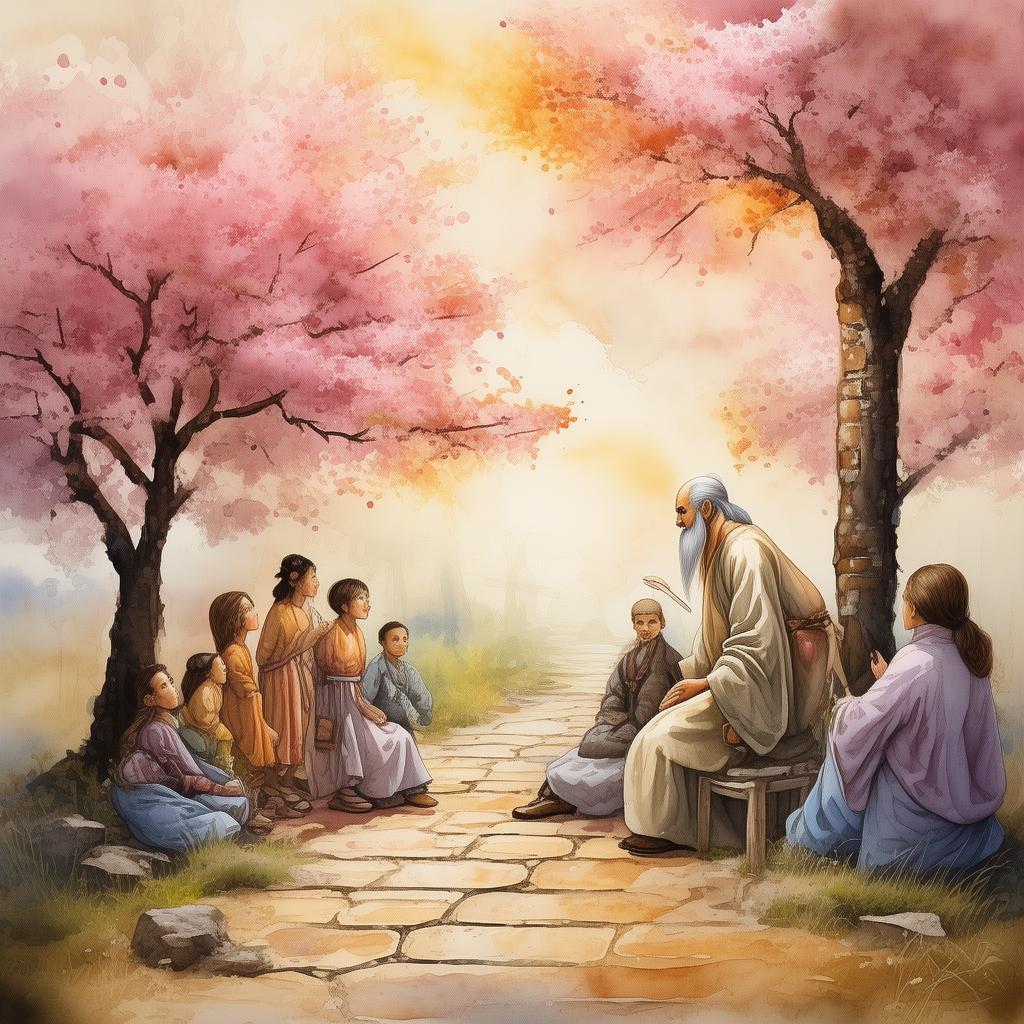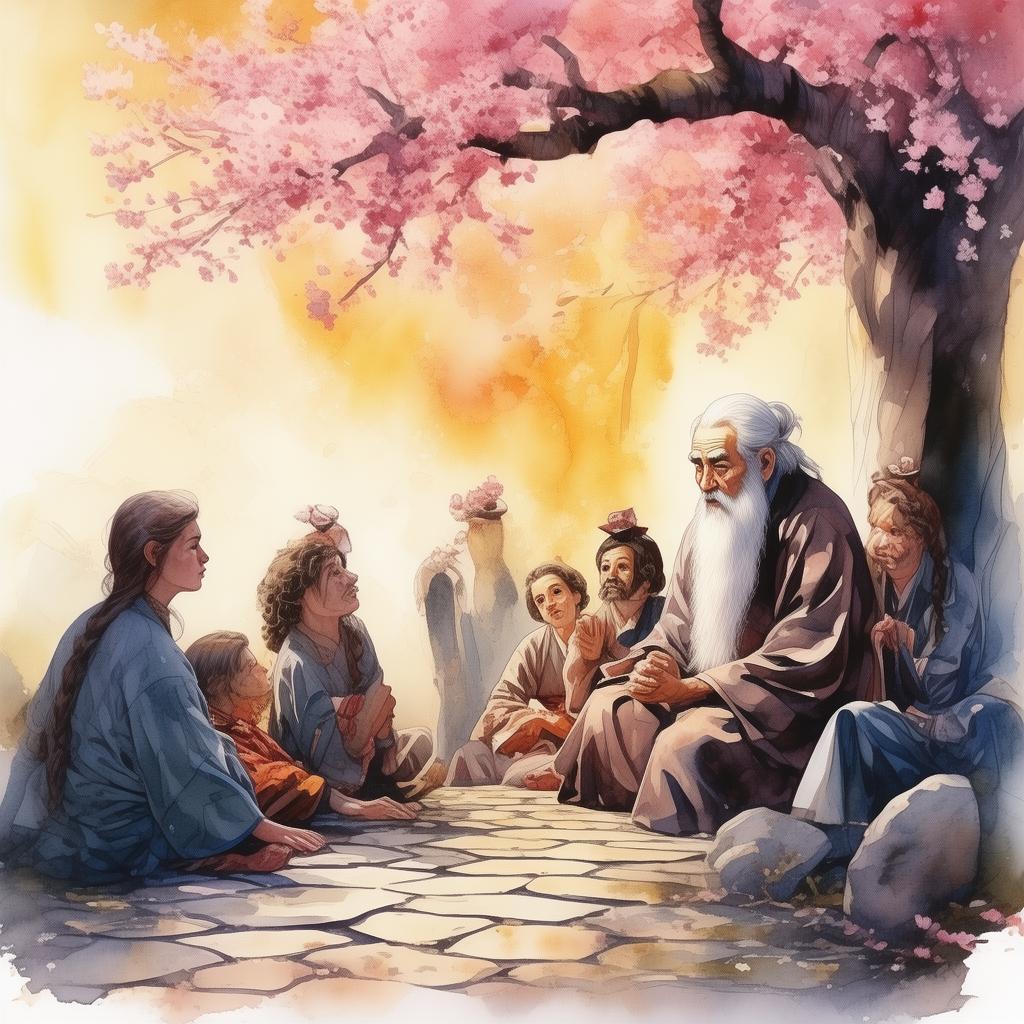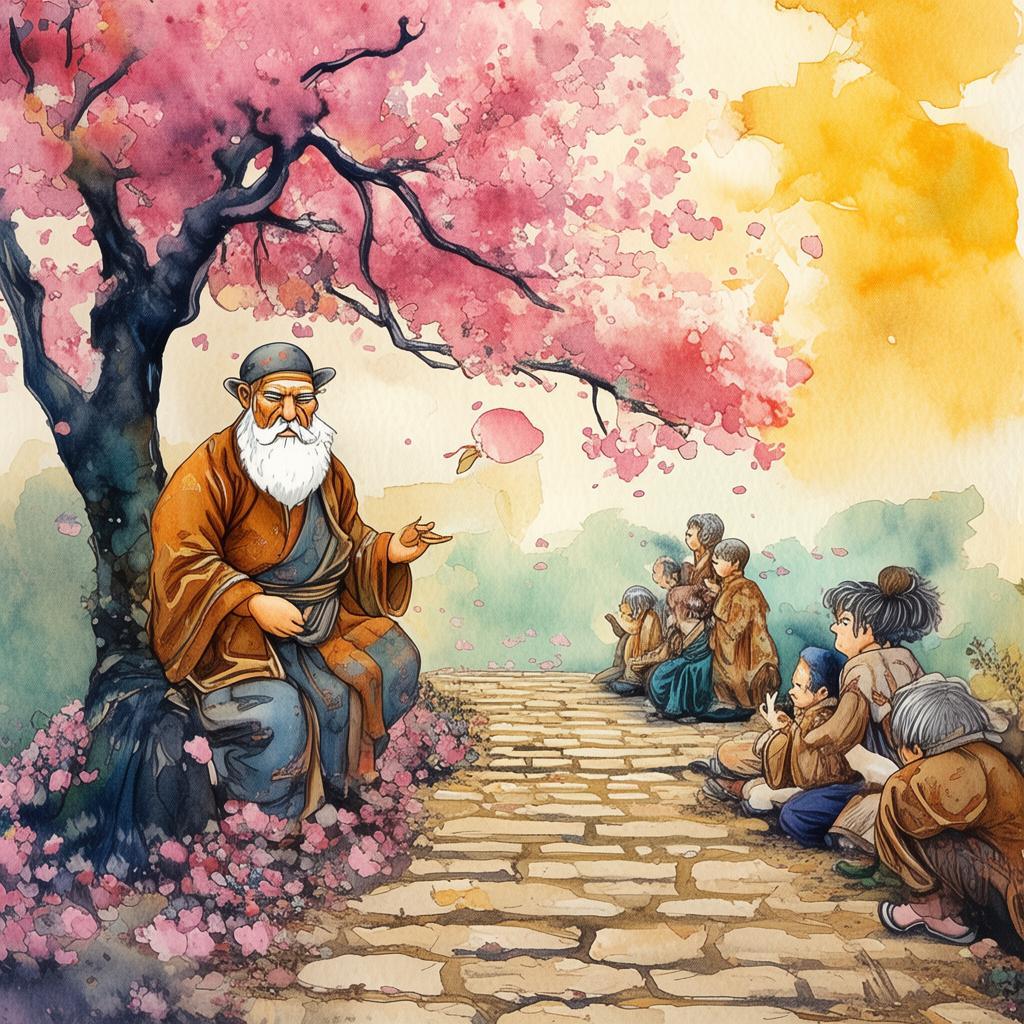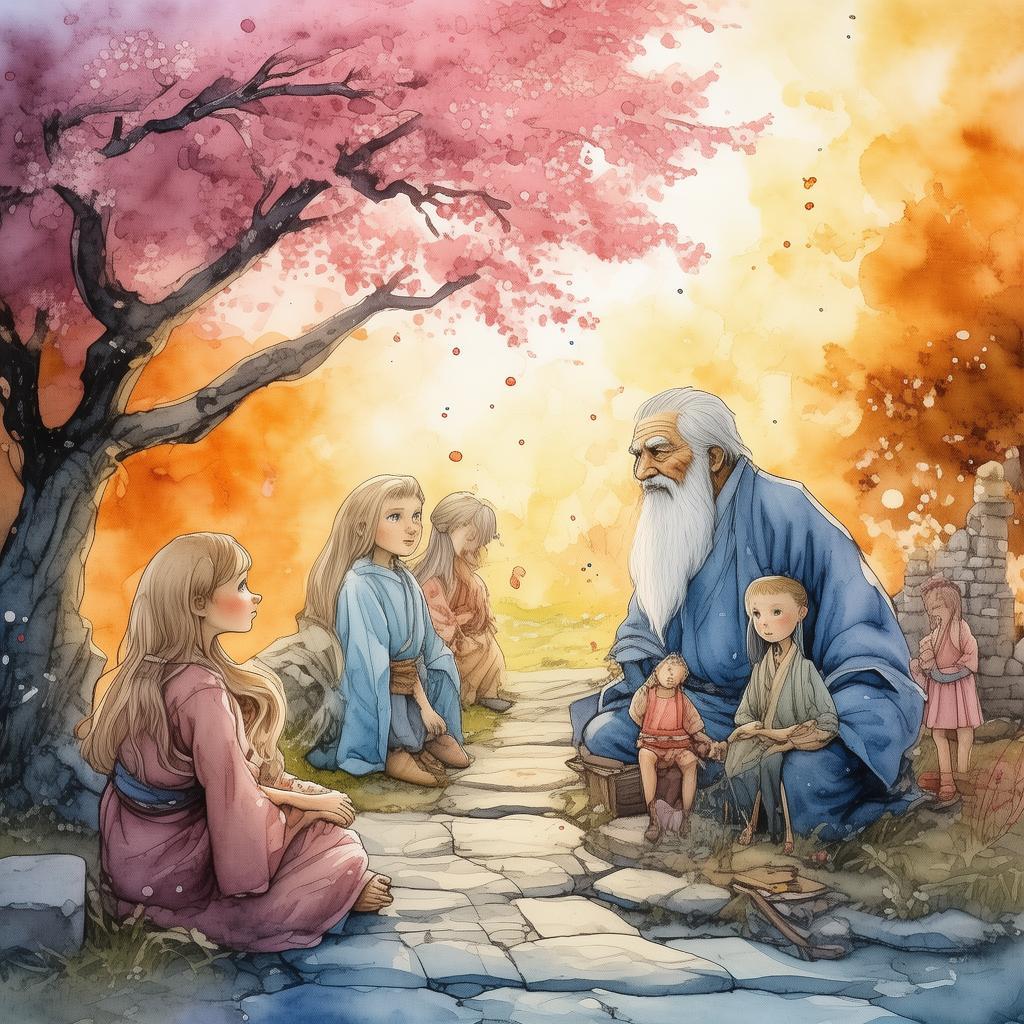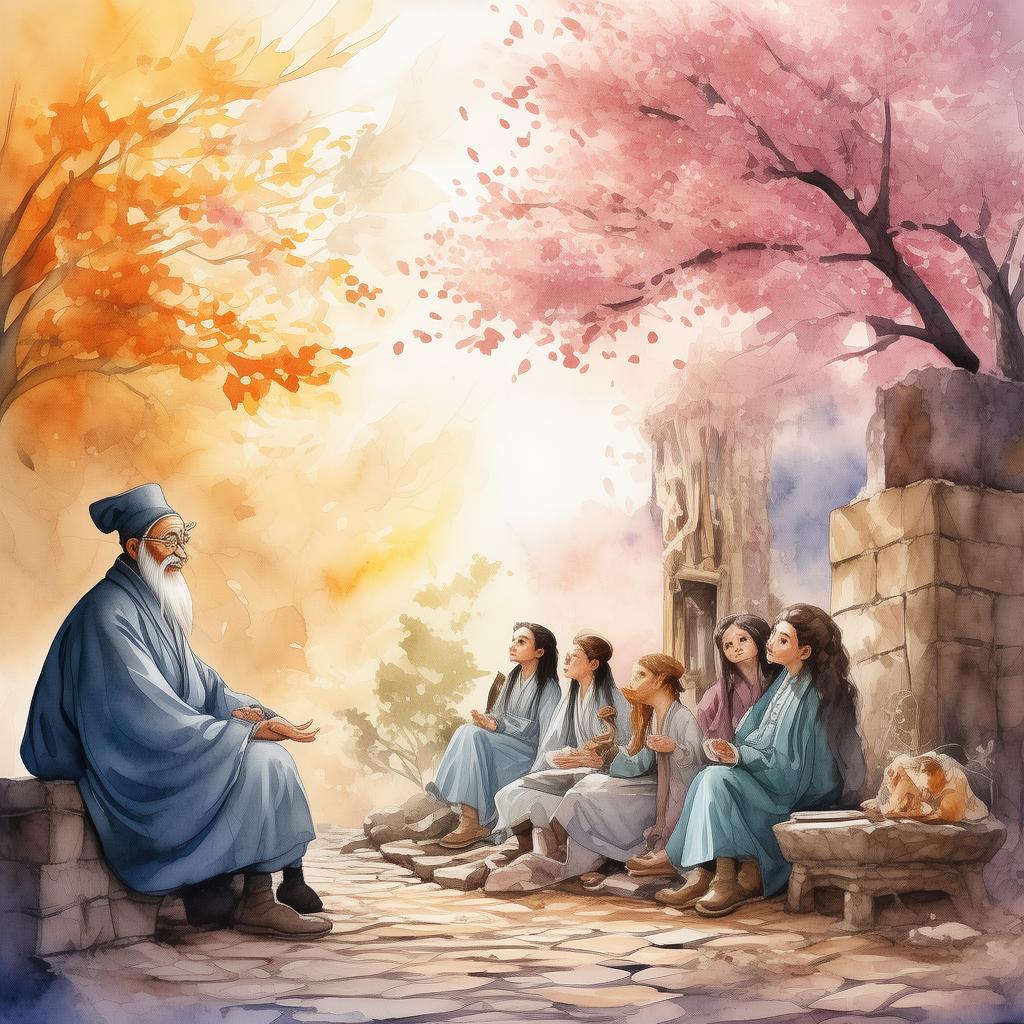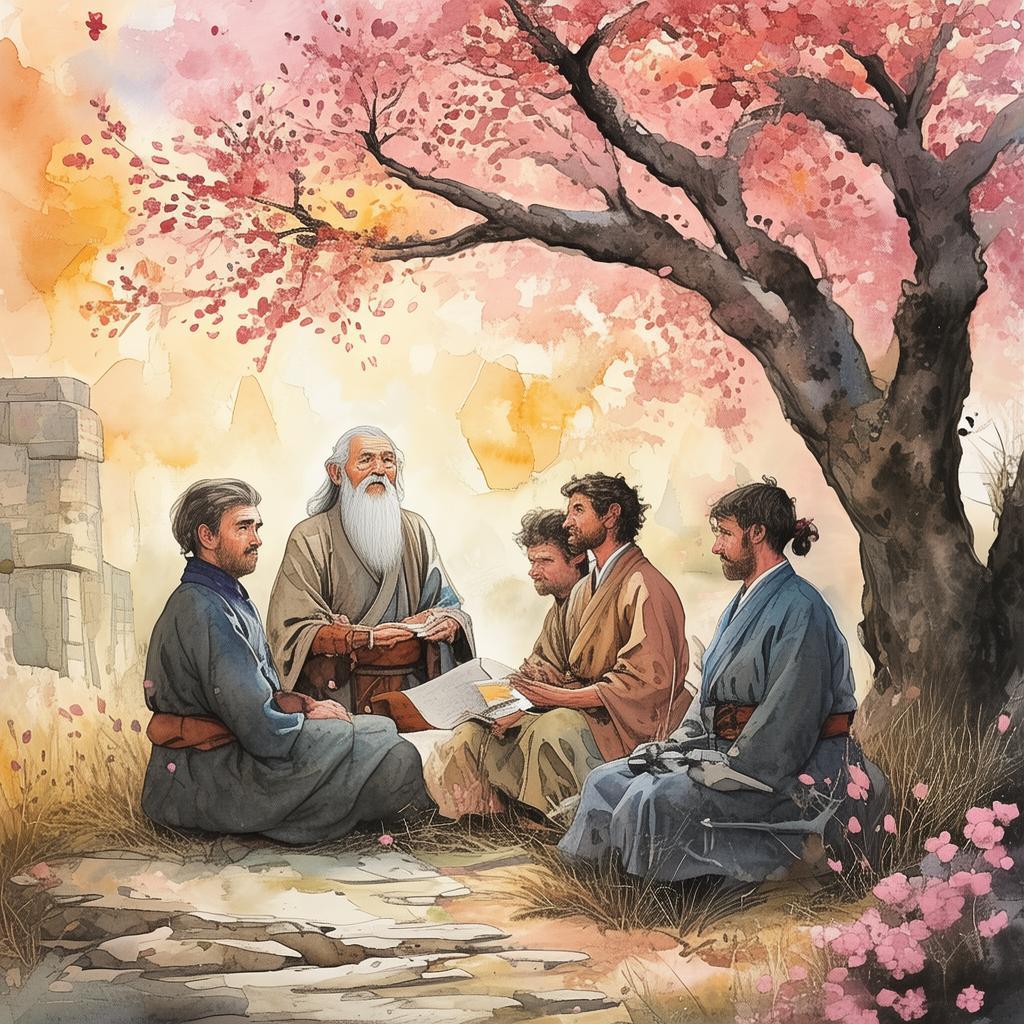The Labyrinth of Words: A Tale of the Pen and the Past
In the ancient city of Jin, there stood a grand library known as the Hall of Wisdom, where the scrolls of ancient knowledge were preserved. Among the scholars who frequented this sanctuary was a young man named Lin Ming, known for his prodigious memory and insatiable thirst for knowledge. Lin Ming was a dervish of words, a master of the written word, and he sought to unravel the mysteries of the past through the proverbs that adorned the walls of the library.
One evening, as the sun dipped below the horizon, casting a golden glow over the city, Lin Ming found himself in the depths of the library, examining a scroll that had caught his eye. The scroll was unlike any other; it was adorned with decorative proverbs, each one a tapestry of characters that seemed to dance with life. Intrigued, Lin Ming began to read aloud, the proverbs echoing through the empty halls:
"Words are the swordsmen of the mind, and the pen is their blade."
As he spoke the words, a strange sensation enveloped him. The proverbs began to glow, and Lin Ming felt a surge of energy course through his veins. He realized that these were not mere proverbs; they were ancient spells, imbued with the power of the past.
With a newfound determination, Lin Ming began to study the proverbs, each one revealing a layer of history and wisdom. He became engrossed in the stories behind these dictums, and soon, he found himself delving into the lives of the people who had first spoken them. The proverbs were not just words; they were windows into the souls of those who had walked the earth before him.
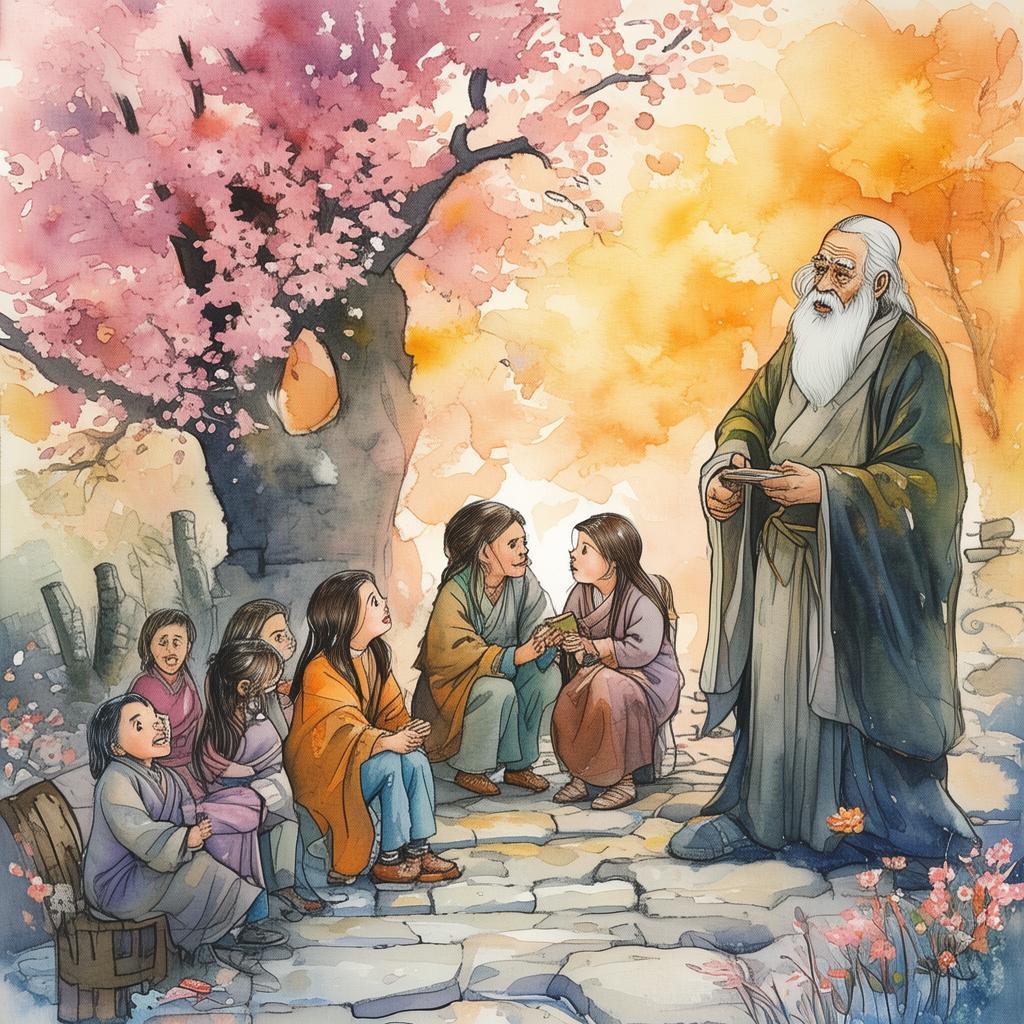
As Lin Ming's knowledge grew, so did his confidence. He began to weave the proverbs into his own writing, creating stories that were both captivating and profound. His tales of the past became the talk of the city, and soon, he was known far and wide as the Pen Dervish, a master of the written word.
One day, as Lin Ming sat in his study, lost in thought, he heard a knock at the door. To his surprise, it was an old man, his eyes twinkling with a knowing smile. The old man introduced himself as Master Hu, a retired scholar who had once been a mentor to Lin Ming's father.
"Lin Ming," Master Hu began, "I have come to you with a tale that may change your life forever."
Lin Ming listened intently as Master Hu recounted a story from his youth, a story that involved a secret that had been kept for generations. As Master Hu spoke, Lin Ming realized that the proverbs he had been studying were not just decorations; they were clues, leading to a profound truth about his own family's past.
The story Master Hu told was one of betrayal and love, of a hidden lineage that had been shrouded in mystery. It was a tale that would change Lin Ming's understanding of himself and his place in the world.
With the proverbs as his guide, Lin Ming embarked on a journey to uncover the truth. He traveled through the mountains and across the seas, facing trials and tribulations at every turn. The proverbs he had once studied were now his compass, leading him to the heart of the labyrinth of words.
In the end, Lin Ming discovered that the proverbs were more than just words; they were a testament to the resilience of the human spirit. They were a reminder that the past is not just a story, but a living, breathing force that shapes the present and future.
As Lin Ming returned to his home, he realized that the power of the proverbs was not just in their ability to reveal the past, but in their ability to inspire the future. He decided to write a new proverb, one that would encapsulate his journey and the lessons he had learned:
"Words are the seeds of change, and the pen is the soil that nourishes them."
And so, Lin Ming became not just a Pen Dervish, but a Dervish of Change, using the power of his words to inspire and transform the world around him.
✨ Original Statement ✨
All articles published on this website (including but not limited to text, images, videos, and other content) are original or authorized for reposting and are protected by relevant laws. Without the explicit written permission of this website, no individual or organization may copy, modify, repost, or use the content for commercial purposes.
If you need to quote or cooperate, please contact this site for authorization. We reserve the right to pursue legal responsibility for any unauthorized use.
Hereby declared.
